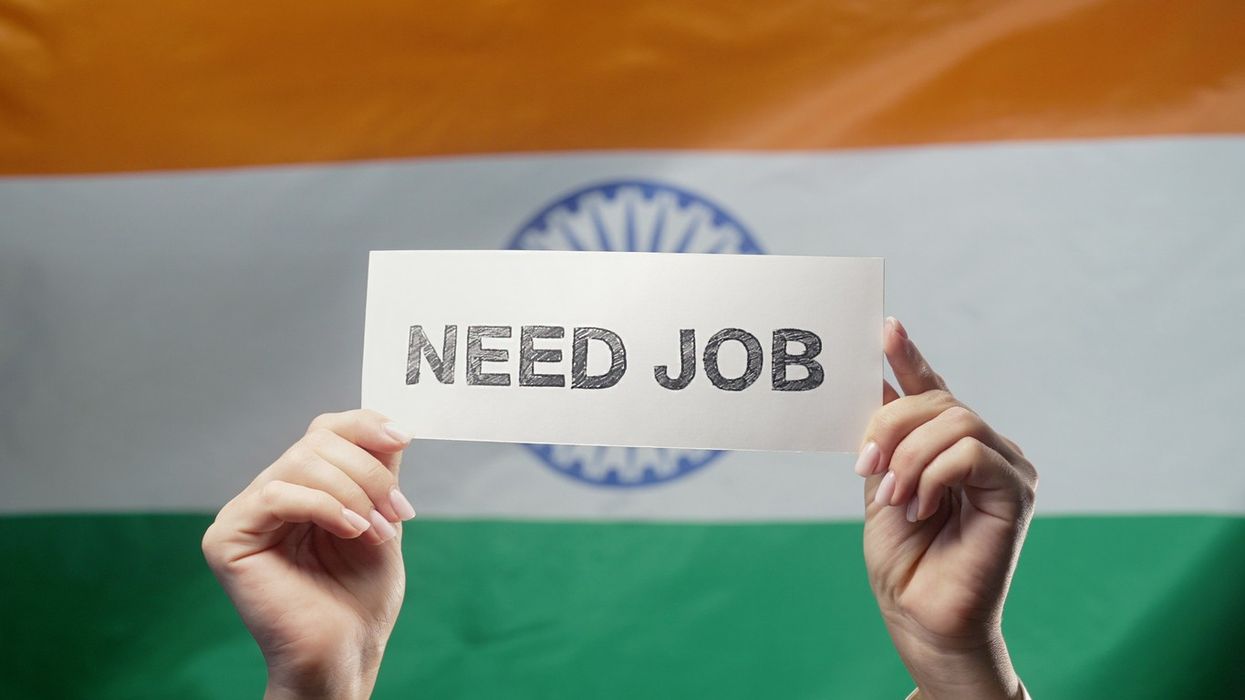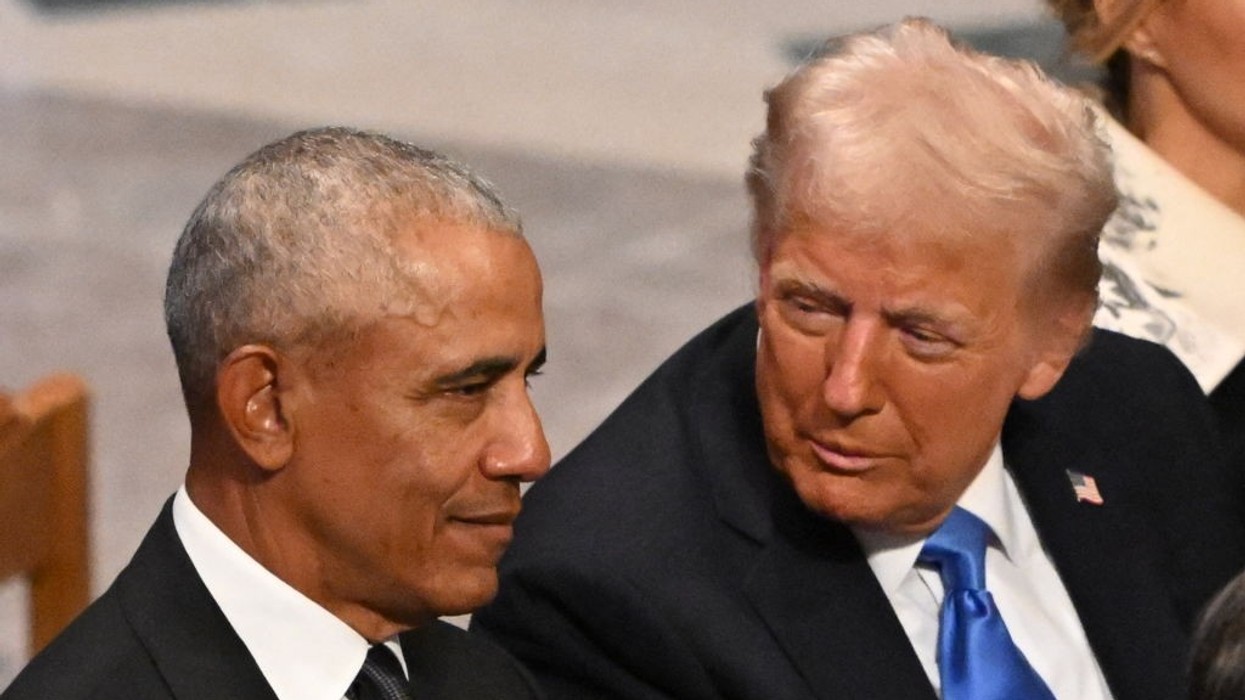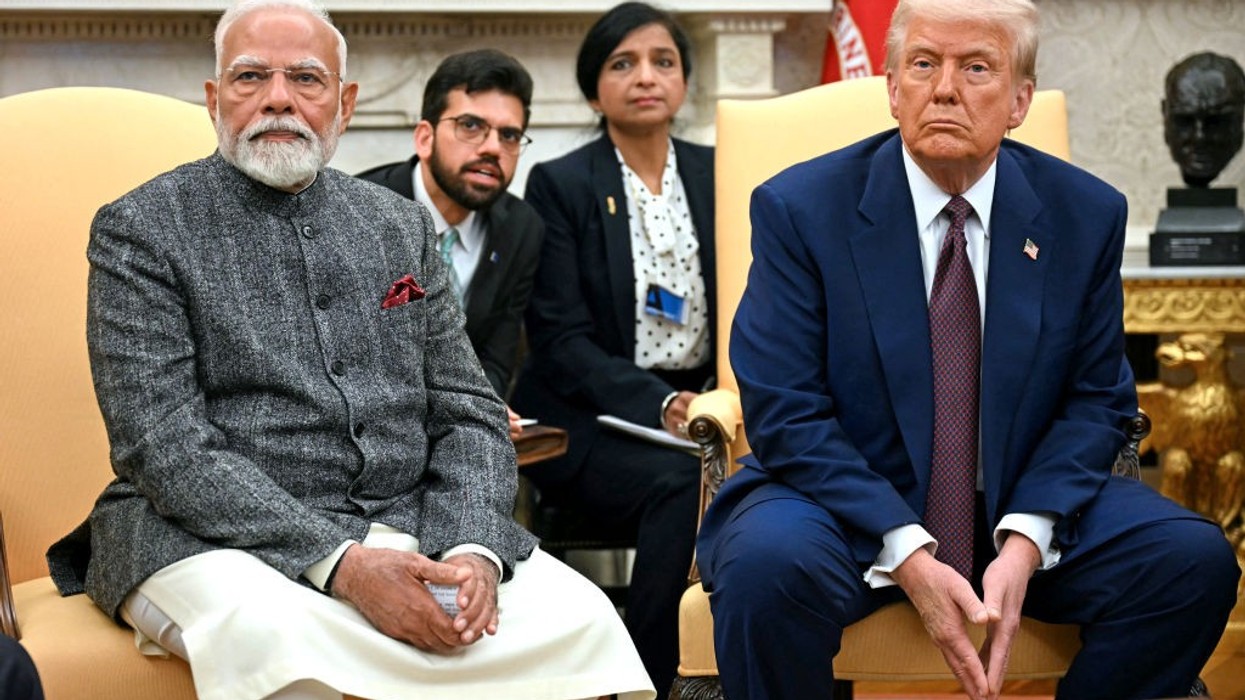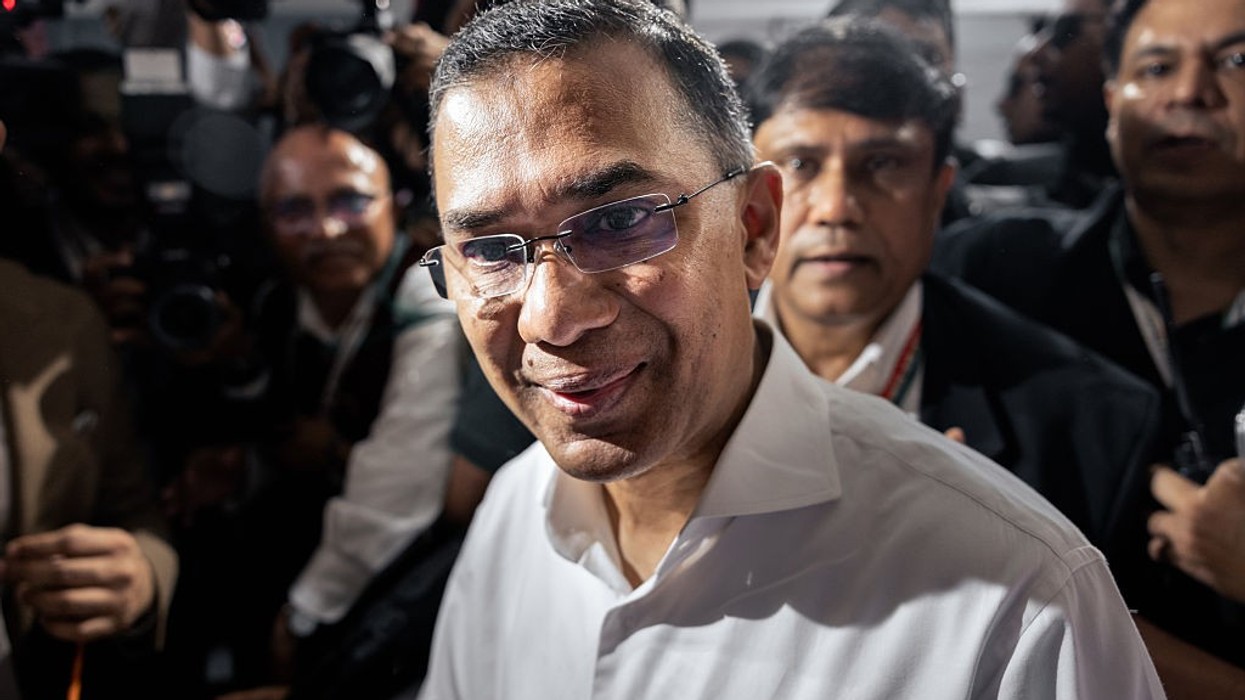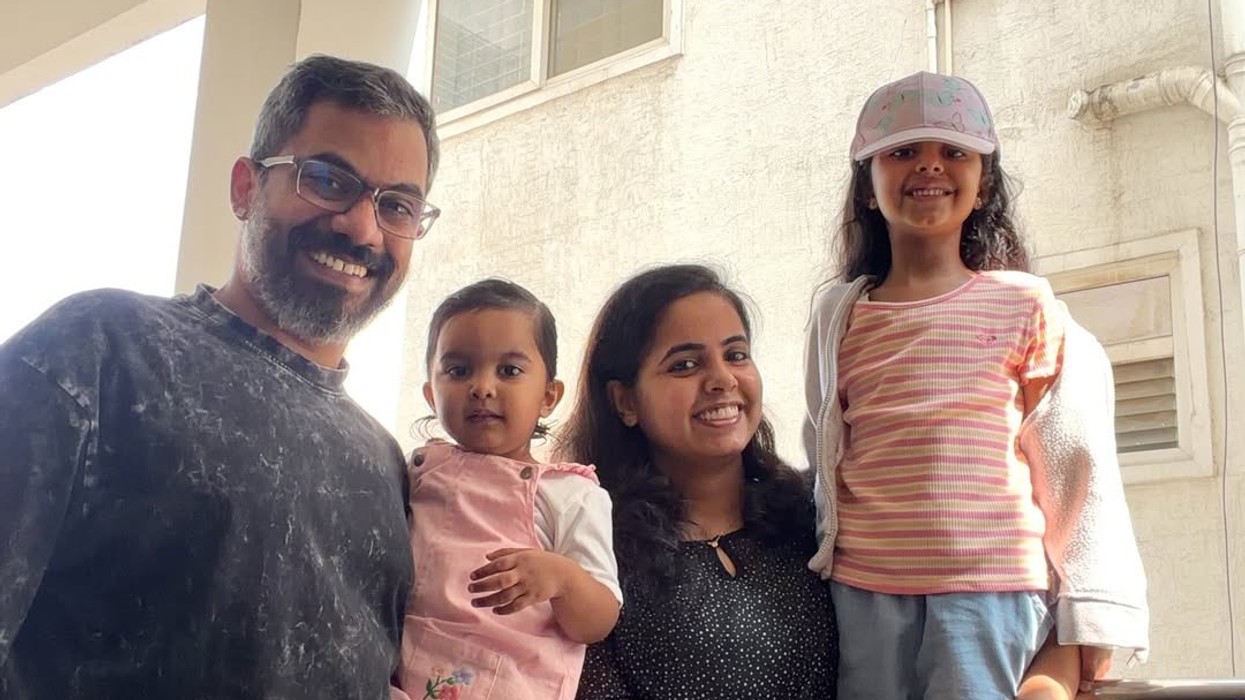Highlights:
- Reddit post sparks debate on Indian managers’ hiring preferences in US tech firms.
- Indian professionals play a major role in driving US innovation and economic growth.
- Regional hiring networks are common across immigrant communities, not unique to Indians.
- H-1B visa dependency creates systemic vulnerabilities, making workers more cautious.
- Recent US policy reforms aim to improve protections and transparency for visa holders.
The H1-B visa row has questioned the Indian work culture. Latest concerns over workplace favoritism and visa-related exploitation in the US tech and retail sectors recently came into the spotlight after a Reddit post by a former Indian employee went viral.
Shared on r/india, the post highlighted the alleged instances of Indian managers favoring fellow Indian employees and especially their own regional or ethnic groups.
Against the Indians
The user, who had worked at Amazon USA before returning to India last month, wrote that one reason for leaving was the behavior of some Indian managers. According to the post, these managers exploit employees on visas, relying on the workers’ vulnerability and the complexity of visa rules. “Honestly, I don't think DJT's reasoning is entirely wrong—there are so many Indians in higher positions who mainly hire other Indians, only to abuse them and their visa status,” he wrote. “They avoid hiring Americans because they know they can't push them to work 24/7, and Americans won't hesitate to sue if boundaries are crossed.”
The poster also mentioned similar patterns at other companies. At Walmart, he said, Telugu managers and employees dominate hiring, noting that “the only real hiring criteria seems to be 'are you Telugu?' and you'll get the job.” At Intel, preference is reportedly given to Gujarati candidates, with the poster adding that “My classmates from uni used to go play cricket with Intel employees to secure internships.”
The Reddit thread attracted strong reactions from other users. One comment read, “You know what’s the worst? The ones who abused the system to get the GC and Citizenship will never be the ones punished; it’ll always be the hard workers who don’t come from certain Indian states.” Another user remarked, “The favoritism based on caste, region, or language is definitely a problem.”
A related anecdote shared by another participant highlighted how these dynamics can play out in hiring: “I have an older relative who’s a manager at a tech firm. She was talking about interviews and mentioned she interviewed two people for a role—an American and an Indian. She said she hired the Indian because she was ‘our caste.’ I wanted to throw up.”
While the original poster clarified that his decision to return to India was not solely because of workplace issues but also due to personal reasons and the challenges of managing work across time zones, the thread sparked debate about cultural dynamics in the US corporate world. “Note: not saying don't go, it's definitely a good experience living in a first-world country. And I'm also not saying everyone is like this. I’ve gotten some really good opportunities to interview, and I’ll admit I regret messing a few of them up…life happens,” he added.
Are skills important for US citizenship?
The discussion is more of a two-sided coin, while the policy is a hurdle for Indians who are aspiring to have a career in the US. Indian professionals who are coming to the US on H-1B visas have more skills than the American citizens; they are most skilled in STEM fields, technology project leaders, driving innovation, and business growth. Indian-origin managers have built strong teams in leading firms like Amazon, Microsoft, and Google, shaping products used by millions worldwide. Their work contributes billions of dollars to the US economy and strengthens its global leadership in tech.
Choosing social phenomenon over workplace
Managerial preference for candidates from known regions or linguistic backgrounds is not unique to Indian managers. Across immigrant and diaspora communities, such networks help build trust, cohesion, and familiarity in workplaces that are often diverse and complex. New immigrants frequently rely on community networks to navigate challenges like relocation, cultural differences, and visa-related pressures. Seen in this light, regional clustering is a natural organizational phenomenon rather than inherently discriminatory behavior.
Restrictive visa behavior
Part of the tension originates from the restrictive nature of H-1B visa rules, which tie an employee’s legal status to their employer. This dependency can make visa holders vulnerable to overwork or unfair demands. Critics often misinterpret this dynamic as deliberate exploitation rather than a byproduct of systemic policy constraints. Recent H-1B policy reforms—including the new $100,000 application fee for fresh petitions starting FY27—aim to curb abuse, protect American workers, and bring more transparency. These measures may push companies to hire more local talent or restructure offshore work models, but they could also result in better working conditions for visa holders.
Thrive above favoritism
While cases of favoritism exist, thousands of Indian professionals thrive in the US, forming cross-cultural teams, advancing into senior roles, and eventually securing permanent residency or citizenship. Many mentor American colleagues, contribute to diversity initiatives, and create pathways for global collaboration. Criticism of hiring bias should be weighed against these positive contributions and the long-term impact of Indian talent on US innovation.
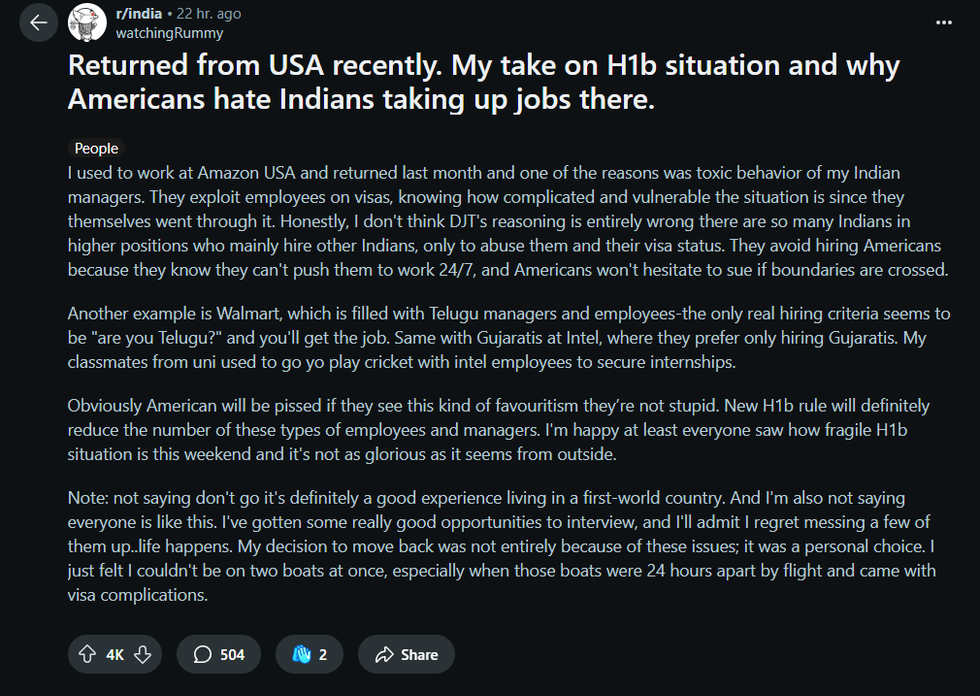
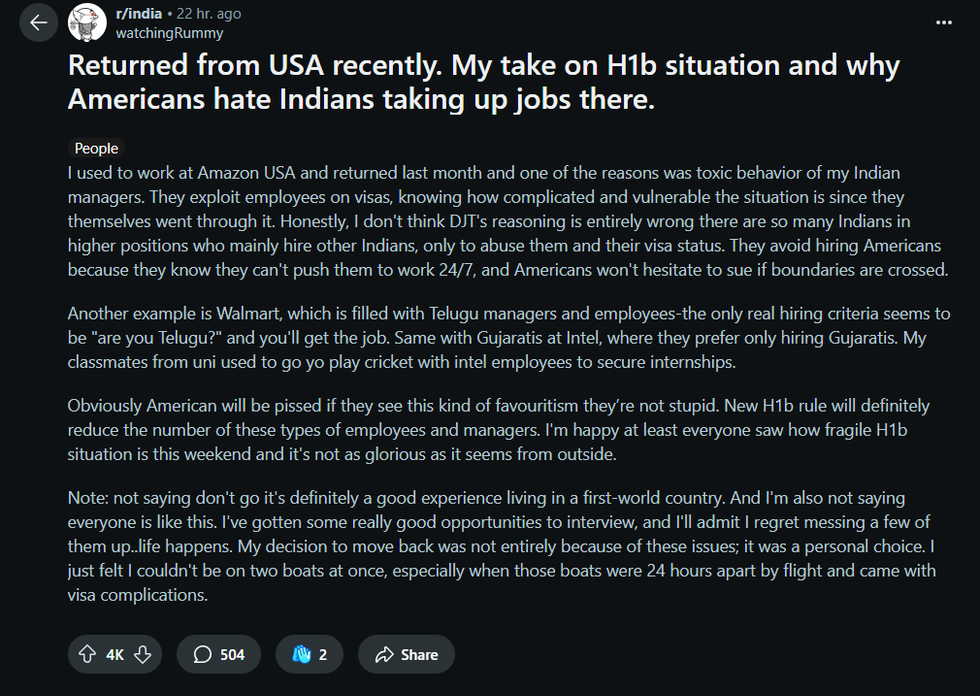
Returned from USA recently. My take on H1b situation and why Americans hate Indians taking up jobs there.
byu/watchingRummy inindia
Returned from USA recently. My take on H1b situation and why Americans hate Indians taking up jobs there.
byu/watchingRummy inindia
from india
